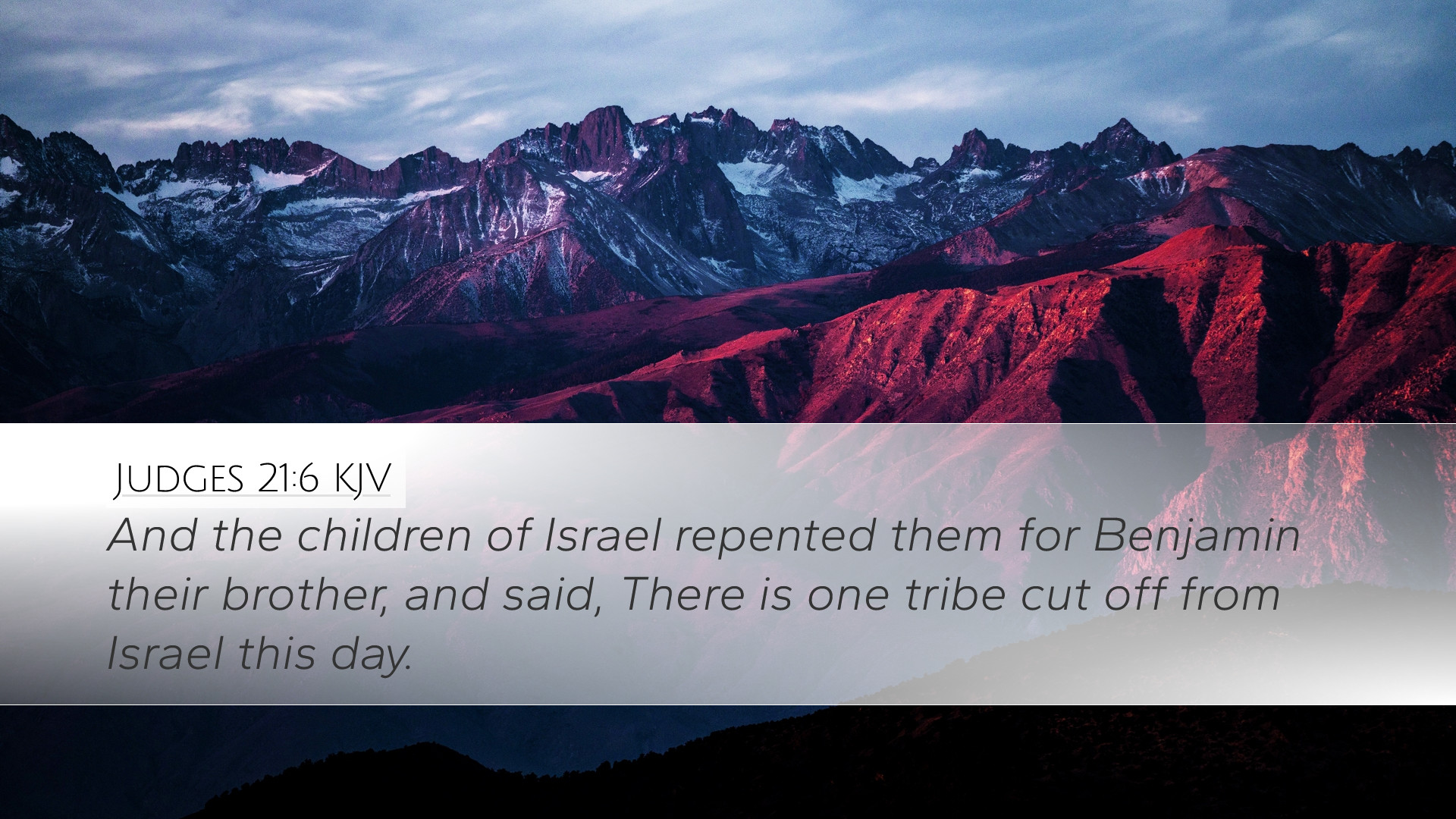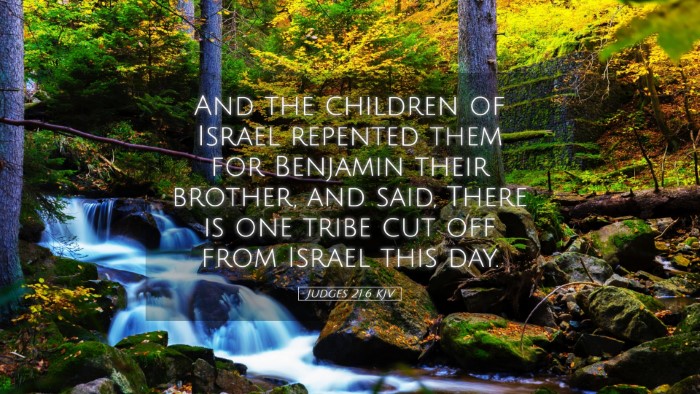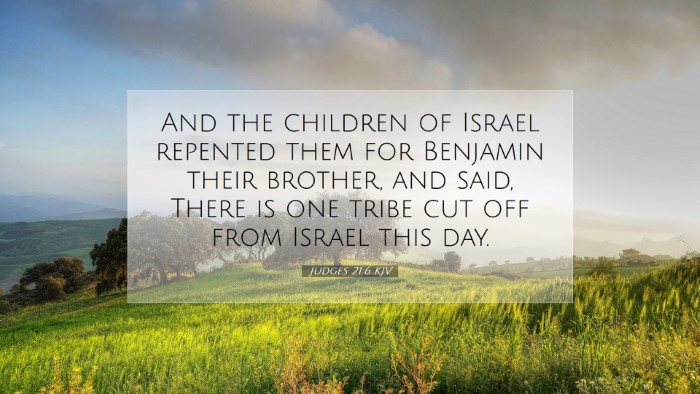Commentary on Judges 21:6
Verse Context & Overview: Judges 21:6 states, "And the children of Israel said, 'There must be an inheritance for the survivors of Benjamin, that a tribe be not blotted out from Israel.'" This verse occurs at the conclusion of a troubled period in Israel's history. The nation faces a moral crisis and inter-tribal conflict stemming from the events surrounding the tribe of Benjamin following the heinous crime in Gibeah (Judges 19). This verse underscores the concern for the welfare of the tribe of Benjamin amidst the collective stance of Israel.
Insights from Public Domain Commentaries
Matthew Henry's Commentary
Matthew Henry emphasizes the profound communal recognition among the Israelites regarding the importance of preserving the tribe of Benjamin. His commentary notes the heart of Israel's lamentation: “the children of Israel mourned for Benjamin because they could not bear to see a tribe perish.” He highlights that their sorrow was not simply for Benjamin's fall but for the potential loss of brotherhood within the Israelite nation. Henry points out the principle of collective responsibility among the tribes of Israel, suggesting that the whole community had a stake in one tribe's survival.
Furthermore, Henry elaborates on the notion of inheritance as a spiritual and physical legacy. He draws attention to the divine promise of land and tribes, which should not be undone by the consequences of sin. This reflects a key theme throughout Judges: the tension between divine judgment and mercy. This verse serves as a poignant reminder of the need for grace and restoration even after severe transgressions.
Albert Barnes' Notes on the Bible
Albert Barnes points out that the Israelites’ mourning for Benjamin reflects their awareness of the fragility of their tribal structure. He notes that the phrase "that a tribe be not blotted out from Israel" signifies a deep concern for the legacy of God's covenant with their ancestors. Barnes interprets the urgency of this statement as indicative of the Israelites’ understanding of identity rooted in their tribal affiliations, particularly within the framework of God’s promises to Abraham and his descendants.
Barnes also provides insight into the broader thematic implications of this lamentation. He argues that this moment showcases the importance of unity and healing after conflict among God's people. The cry for Benjamin serves as a call to action for reparation and reconciliation, proposing that the survival of a single tribe is essential to the nation’s identity and history. The notion of communal integrity, as emphasized by Barnes, speaks to a key principle in Christian community life today.
Adam Clarke's Commentary
Adam Clarke offers a historical context for the events surrounding this verse, asserting that the plight of Benjamin was both a consequence of sin and a focal point for collective repentance. He suggests that the situation presents a dual aspect of divine justice and mercy. Clarke expounds on the concept of "survivors of Benjamin," observing that despite the brutal outcome of events, there remains a remnant—akin to the theological notion of a remnant in biblical prophecy.
Clarke emphasizes the theological implications of God's covenant with Israel. He interprets this plea for preservation as a reflection of God's grace towards His people. The concept of survivorship among the tribes becomes a metaphor for hope and restoration, implying that, despite sin, God's mercy can bring about revival. Clarke encourages readers to maintain hope in times of collective failure, reminding them of the importance of seeking restoration in the community of faith.
Theological Reflections
This verse encapsulates the overarching theme of restoration prevalent in the biblical narrative. It reflects the nature of God as a Redeemer who desires His people to be whole. The call to preserve the tribe of Benjamin speaks not only to historical Israel but also to contemporary ecclesiology—a reminder of the importance of fostering unity within the body of Christ, especially in times of conflict.
Applications for Pastors and Christian Leaders
- Community Awareness: Encourage congregations to maintain awareness of the well-being of all members, particularly those on the margins, drawing from Israel's concern for Benjamin.
- Restoration Focus: Promote a culture of reconciliation and restoration within church communities, reflecting the grace that seeks to preserve and heal rather than condemn.
- Collective Responsibility: Emphasize the scriptural principle of communal responsibility, urging leaders to guide their flock in accountability and mutual support, reminiscent of the shared grief of the tribes of Israel.
Conclusion
The lamentation for Benjamin in Judges 21:6 serves as a foundational text that reinforces the necessity of mercy, collective identity, and the importance of each community member in the eyes of God. As we reflect on this passage, may we continually strive to embody the principles of empathy, unity, and grace as demonstrated by the Israelites. The task of preserving our spiritual tribes in the face of adversity is a calling for every generation of believers.


